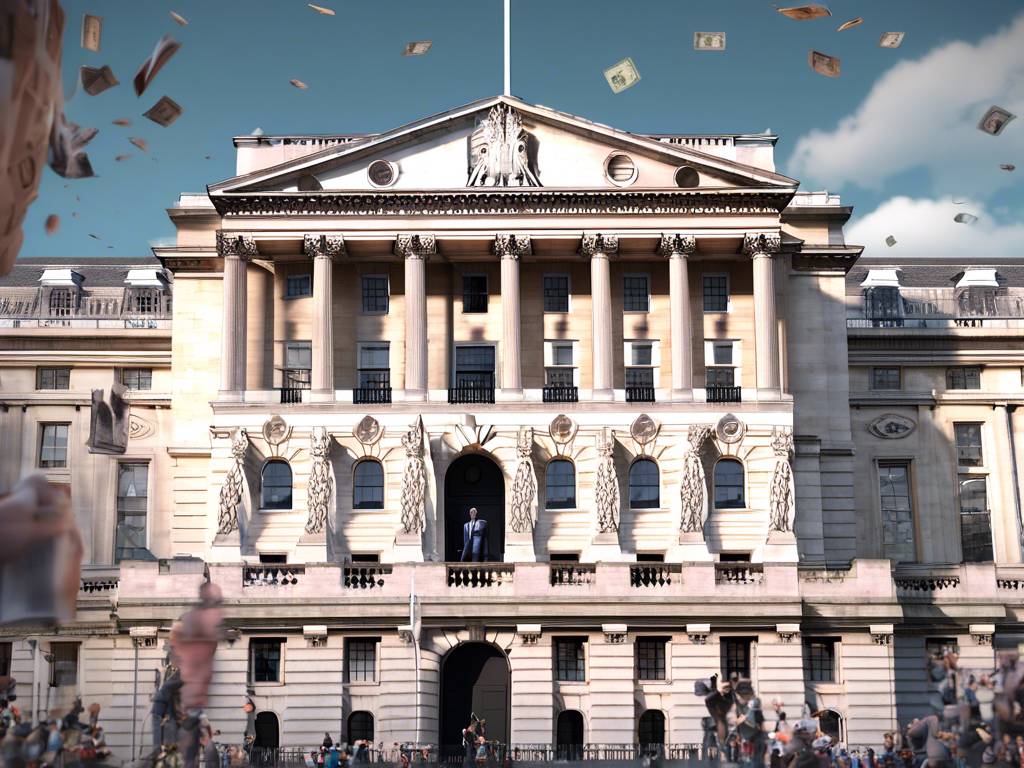Bank of England to Decide on Interest Rates: What Does it Mean for the Economy?
The Bank of England (BOE) will soon make a decision on its interest rate target, which currently stands at 5.25%. This decision has the potential to impact financial markets and the overall economy as the central bank grapples with rising inflation.
Notably, the BOE implemented a policy of interest rate hikes in response to the end of the COVID-19 pandemic and the surge in inflation. In fact, the United Kingdom’s inflation rate reached record levels in 2022, surpassing levels seen since 1990 according to data from MacroTrends.
However, Andrew Bailey, the director of the central bank, sees some positive signs in the current inflation data, which he believes bodes well for the economy. Investors have reacted positively to this information and see it as a potential indication of the BOE’s future decisions.
That being said, Bailey made it clear on February 15 that the committee will not rush into rate cuts going forward.
Historical Interest Rate Decisions by BOE
The Bank of England raised interest rates 14 times between December 2021 and August 2023. During this period, target rates soared from an all-time low of 0.1% to the current high of 5.25%. This unprecedented behavior is evident from historical data available on the Bank’s website.
An analysis by Martin Beck, chief economic advisor to the EY Item Club, suggests that little has changed recently. In December, Beck noted that inflation and wage growth had slowed more than anticipated by the Bank.
“There’s been nothing in the way of significant economic surprises over the last four weeks and inflation and pay growth have slowed (the former by more than the Bank of England expected).”
As reported by The Standard, the British public has been hit hard by interest rate hikes and has low confidence in future improvements. A recent survey conducted by the Bank of England revealed that people expect high levels of inflation to persist until late 2028. This sentiment may further delay any policy changes.
The United States Federal Reserve has also implemented similar policies to combat inflation. However, these “anti-inflation” measures have not produced the desired results, leading to doubts about their effectiveness.
Overall, investors are eagerly awaiting the BOE’s upcoming interest rate decision on March 21. This decision could have far-reaching implications for commodities and various markets, including cryptocurrencies and stocks.
Hot Take: BOE Decision Holds Key to Economic Outlook 📈📉
The Bank of England’s upcoming decision on interest rates is crucial for shaping the economic landscape. Here’s what you need to know:
- The BOE is set to announce its interest rate target on March 21.
- This decision will have an impact on financial markets and the overall economy.
- The central bank has been raising interest rates in response to soaring inflation.
- Recent inflation data has provided some optimism for the economy, but the committee remains cautious about rate cuts.
- Historically, the BOE has raised interest rates numerous times over a short period.
- Analysts suggest that little has changed recently in terms of inflation and wage growth.
- The public’s confidence in future improvements is low due to ongoing interest rate hikes and high inflation expectations.
- The effectiveness of “anti-inflation” policies implemented by central banks, including the BOE and the US Federal Reserve, is being questioned.
- Investors are eagerly awaiting the BOE’s decision, which could have implications for commodities, cryptocurrencies, and stocks.
The outcome of the BOE’s decision will shape the economic trajectory going forward. Stay tuned to see how it unfolds!





 By
By
 By
By
 By
By
 By
By

 By
By